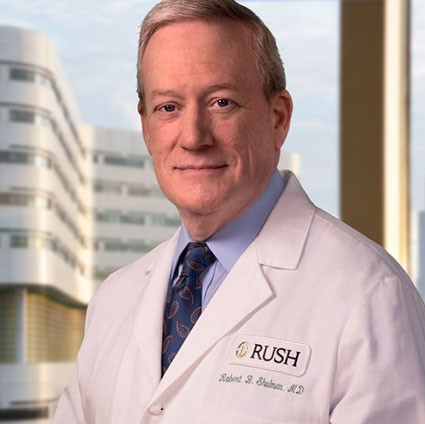Part of Rush University Medical Center’s efforts around helping people with trauma and/or PTSD is working with the community—whether screening children more effectively during pediatric visits, working with families, or advising schools. Ongoing adverse events in inner city communities can cause young children, adolescents, and adults to experience trauma and PTSD, but these issues are treatable with professional interventions.
Robert Shulman, MD is the director of the Road Home Program at Rush University Medical Center, part of the Wounded Warrior Project's Warrior Care Network.
For information about treatments for PTSD please visit The Treatment Hub.
There are different types of trauma. There’s the trauma from an acute event, and then there’s the trauma of sort of lifelong, adverse events, especially in childhood and adolescence and such. So in the inner city, we certainly see tremendous trauma in the community, in our communities of color, our communities of lower socioeconomic means with gangs, drugs. I mean, it’s a tough community to grow up in and there is trauma everywhere in the community. And we see it in kids, evidence of it in children five, six, seven years old as well. And it’s really hard to identify as such and hard to know what to do. And one of our endeavors with our child community behavioral health and our child division is to screen more effectively for trauma in the community at the primary care, at the pediatrician’s office and setting up other community centers for ways to screen for trauma and to initiate treatment programs both for the child, for the parents, advise the schools and such. It’s really a great, great effort to be successful. It takes interventions everywhere in the environment, in the system. BrainLine is powered in part by Wounded Warrior Project to honor and empower post-9/11 injured service members, veterans, and their families.
About the author: Robert B. Shulman, MD
Robert Shulman, MD is the Director of Road Home Program and currently acting chair of the Department of Psychiatry and Behavioral Sciences at Rush University Medical Center and Mental Health Service Line Director for the Rush University System for Health. He is a graduate of Lewis & Clark College and The Chicago Medical School (with many clinical rotations at the VA Hospital).

